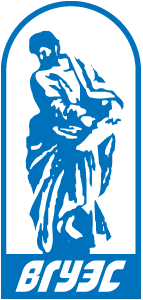The high quality of the results of the collaborative work of authors, reviewers and members of the journals' editorial in preparing manuscripts for publication is ensured by the recognition and observance by all parties of this process of the publication ethics standards. The rules of Publication Ethics of the journal "Ojkumena. Regional studies" are based on international standards developed by the Committee on Publication Ethics.
Ethical standards of the authors' work
- The manuscript submitted to the Editorial Board must contain reliable and accurate information about its author (authors). The authors of the article should include all those, and only those persons who have made a significant contribution to the preparation of this study. To other persons, involved in the implementation of the research project, gratitude should be expressed in the manuscript;
- The authors are obliged to guarantee the absence of plagiarism in the manuscript. All sources used in the preparation of the manuscript (published and unpublished, including illustrative material) should be disclosed through appropriately formatted references;
- The authors are responsible for the accuracy of the factual material and for the fact that no data reported by them have been falsified or fabricated;
- Authors should disclose conflicts of interest that may affect the evaluation and interpretation of their manuscript, as well as indicate sources of financial support for the research (grants, government programs, projects, etc.);
- Re-submission the previously published article to the journal "Ojkumena. Regional studies" is unacceptable. Re-publication of an article previously published in the journal "Ojkumena. Regional studies" is permissible only if there is a reference to the primary publication.
Ethical standards of reviewing
- The reviewer must ensure the confidentiality of information contained in the manuscript. Peer reviewed manuscript may not be transmitted or discussed by the reviewer with anyone, without the consent of the editors. Information from an unpublished manuscript cannot be used by the reviewer in their own research;
- The reviewer must refuse to review if there is a conflict of interest or other circumstances that prevent an impartial and qualified evaluation of the manuscript;
- The review should provide an objective and reasoned assessment of research results. Personal criticism of the author of the manuscript is unacceptable;
- The reviewer must inform the Editorial Board about any identified violations by the author of a manuscript of publication ethics.
Ethical standards of editing
- The Editorial Board decides about publishing or rejecting the manuscript on the basis of its scientific content, compliance with the guidelines and standards of publication ethics adopted by the journal. Status and other characteristics of the authors may not affect the decision to publish;
- When deciding about publication of the manuscript the Editorial Board has to consider the resolution given by the reviewer (reviewers);
- All decisions about publication or rejection of manuscripts should be made by the Editorial Board without interference of the publisher (founder) of the journal;
- The Editorial Board is responsible for maintaining the confidentiality of the content of the submitted manuscripts, and respect of anonymity in the process of double blind peer review;
- The Editorial Board is obliged to consider any claims of unethical behavior of the authors of manuscripts and already published articles, conduct investigations, and, in the case of confirmation of the alleged violations, to make public the results thereof;
- The violations of publication ethics may be grounds for retraction of the article, the termination of further cooperation with the author or the reviewer, and changes in the composition of the Editorial Board.






